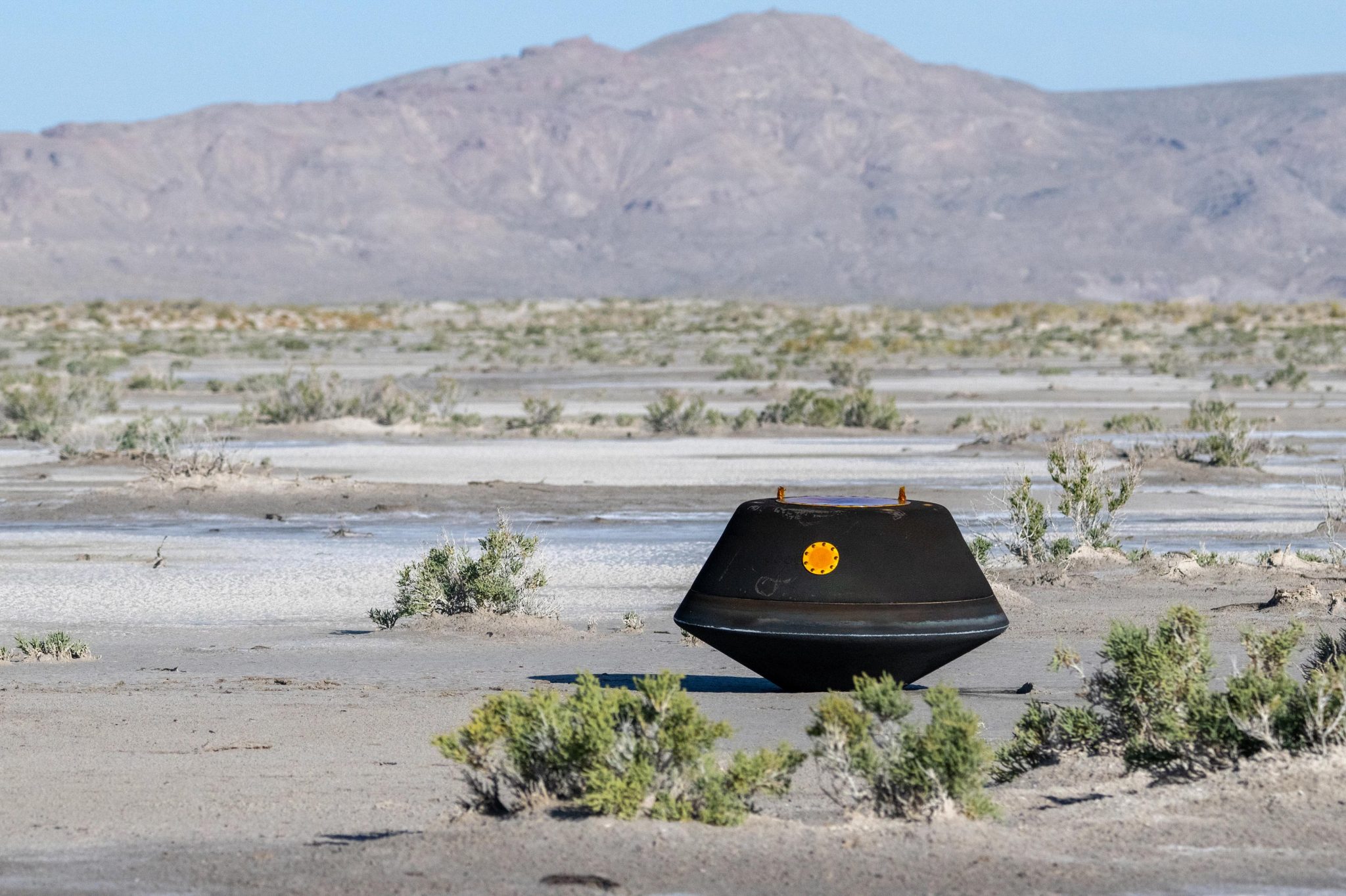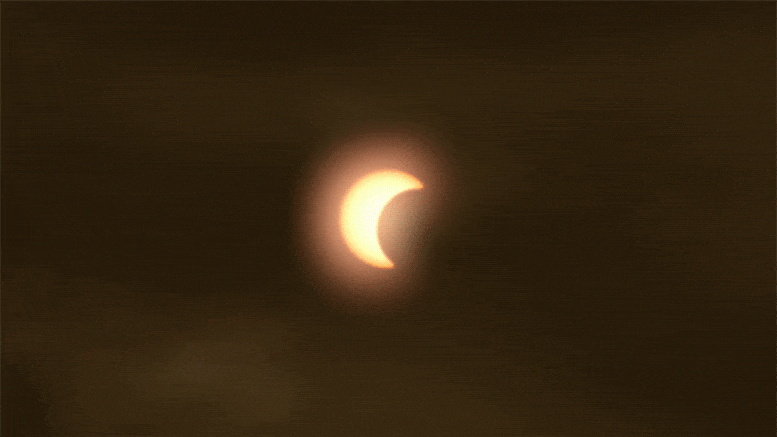
A sample return capsule from NASA’s OSIRIS-REx mission is seen shortly after landing in the desert on Sept. 24, 2023, at the Department of Defense Test and Training Range in Utah. The sample was collected from the asteroid Bennu in October 2020 by NASA’s OSIRIS-REx spacecraft. Credit: NASA/Kegan Barber
NASAThe first mission to return an asteroid sample to Earth returns…
A record space flight for a NASA astronaut…
NASA’s Artemis II mission is making pre-launch progress…
Some stories we’ll tell you – This Week in NASA!
NASA’s First Land Returning Asteroid Sample Is Important
On September 24, the OSIRIS-REx sample return capsule — containing samples of rocks and dust from the asteroid Bennu — made its historic return to Earth, marking the end of NASA’s first asteroid sample return mission.
“And landing from Osiris Rex Sample return capsule!
The next day, the sample return capsule was transported to NASA’s Johnson Space Center in Houston, where the sample materials inside will be cared for, stored and shared with scientists around the world.

NASA astronaut Frank Rubio on Expedition 69 is helped off the Soyuz MS-23 spacecraft just minutes after Roscosmos cosmonauts Sergei Prokopyev and Dmitry Petlin landed in a remote area near the city of Dzhezkazgan, Kazakhstan, on Wednesday, September 27, 2023. The trio returns to Earth after… Spending 371 days in space as members of Expeditions 68-69 aboard the International Space Station. For Rubio, his mission is the longest space flight by an American astronaut in history. Image credit: NASA/Bill Ingalls
Record-setting NASA astronaut returns to Earth
The week saw another historic return from space – this time on September 27 – for NASA astronaut Frank Rubio.
After spending 371 days in space, an American record, Rubio landed safely in Kazakhstan with two of his colleagues.
“Rubio’s record-breaking journey has come to an end.”
Rubio’s extended mission provides researchers the opportunity to observe the effects of long-duration spaceflight on humans.

Engineers and technicians from NASA, Aerojet Rocketdyne and Boeing at NASA’s Michoud Assembly Facility in New Orleans installed all four RS-25 engines on the core stage of NASA’s Space Launch System rocket that will help power the first crewed Artemis mission to the moon. The yellow core stage is shown horizontally in the final assembly area at Michoud. The engines at the bottom of the rocket stage are arranged in a square pattern, like legs on a table. Image credit: NASA/Eric Bordelon
Artemis II rocket and crew making progress
Teams at NASA’s Michoud Assembly Facility in New Orleans have structurally attached all four RS-25 engines to the core stage of NASA’s Artemis II Moon rocket.
Meanwhile, Artemis 2 astronauts recently completed the first of a series of integrated ground system tests at NASA’s Kennedy Space Center.
The Artemis 2 flight test around the Moon and back is the agency’s first crewed mission under Artemis’ command.

This concept animation is an example of what you might expect to see through certified solar viewing glasses or a portable solar filter during an annular solar eclipse, such as the one occurring over the United States on October 14, 2023. An annular eclipse is known for the “ring of fire” effect that appears Around the edge of the moon. This happens because the Moon is slightly farther away from Earth and appears too small to completely block the Sun. Credit: NASA
Preview of the “Ring of Fire” annular eclipse on October 14
On October 14, an annular solar eclipse will pass over the United States from Oregon to Texas. An annular eclipse is also known as a “ring of fire” eclipse because the Moon does not completely block the Sun, but instead leaves a bright ring of the Sun. Learn more about the eclipse at solarsystem.nasa.gov/eclipses.
That’s what happened this week at @NASA.

“Beer aficionado. Gamer. Alcohol fanatic. Evil food trailblazer. Avid bacon maven.”
